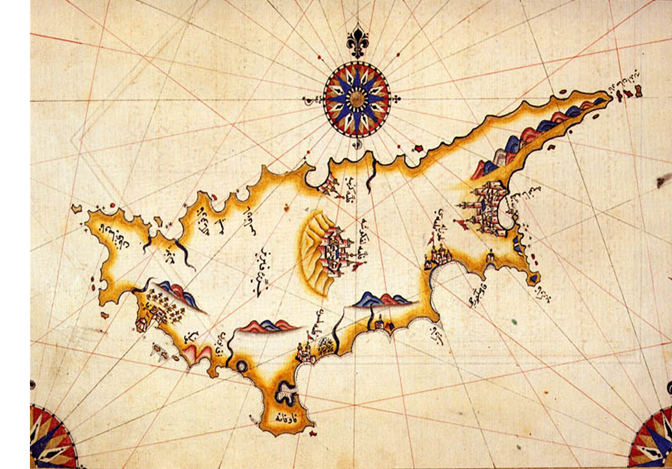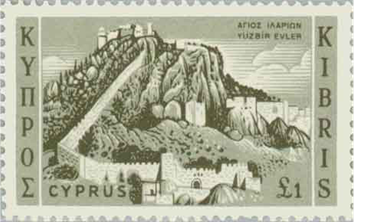Cyprus, the third largest island in the Mediterranean, has had a very eventful history since 8500 B.C, when the first group of settlers came to the island. There has always been fierce competition between a variation of different ancient communities to have power over the island, due to its richness in copper and timber and also its strategic location at the centre of all the important trading routes. Among the many different nations who have fought to have Cyprus are the Egyptians, Greeks, Ottomans, Assyrians, Persians, and the Phoenicians.
Romans Cyprus was a part of the huge Roman Empire in 58B.C. Judging by the mosaic floors adorning the ruins in the city of Soli, it is possible to conclude that the island had become Christian by the year of 43A.D. By the year of 330A.D, Cyprus had joint the Byzantine Empire.
Cyprus was a part of the huge Roman Empire in 58B.C. Judging by the mosaic floors adorning the ruins in the city of Soli, it is possible to conclude that the island had become Christian by the year of 43A.D. By the year of 330A.D, Cyprus had joint the Byzantine Empire.
Byzantine
There is no doubt that the island of Cyprus was once ruled by the Byzantines, as it is possible to come across many ancient structures thought to be once built by this huge empire. The legend of the Five Finger Mountains also belongs to the Byzantine era, where it is said that the Byzantine hero Dighenis left the imprint of fingers on the mountain as he took leap from Asia Minor to Cyprus during his escape.
British
It is believed that during his journey to the Holy Land on a crusade in 1191, Richard the Lionheart succeeded in conquering the island, only to go and sell it to the Knights Templar, who had a sudden change of heart and gave it back. This time Richard the Lionheart sold it to Guy de Lusignan, who was a French Noble. The Lusignans were to rule the island mercilessly for the next three centuries, with small interruptions in 1372 by the Genoese and in 1426 by the Marmelukes in an attempt to conquer the island.
Venetian
The rein of the Lusignan family finally came to end when the last of their kings died in 1489 and his wife sold the island to Venice. The Venetians had a very strict control over the island and would make their citizens pay high taxes. The also used the island for military base purposes and fortified the island. When the Ottomans seized power over Cyprus in 1571 and got rid of the Venetians, the people of the island were able to somewhat relax after the strict Venetian rule.
Ottoman
While the ruling Ottomans banned the islands Catholic faith, they made room for the Orthodox Church and Islam to develop within the islanders. The Ottomans continued to rule Cyprus for the next 500 years. In 1878 Zypern had began to use British government and legal systems, a result due to Britain taking the Ottomans side and supporting them to keep the Russian threat under control.
Cyprus in two World Wars
Turkey had emerged from the 1st World War as a defeated nation, and as a result Cyprus became part of the British Colony in 1925. After the 2nd World War was over, rebelling and violence against the British rulers by the Greek Cypriots started to occur, as the Greek Cypriots believed the island should be joined to Greece. To solve the ongoing problem, the UN tried to find ways to create an independent Cyprus in 1957, and this was established with the Treaty of Zurich, in 1960, signed and supported by Britain, Greece and Turkey, all agreeing to keep the rights of the Turkish Cypriot community in mind.
 Divided North Cyprus
Divided North Cyprus
The Treaty of Zurich which created a unified Cyprus only managed to last for a meek 3 years before war broke out in 1963. The UN intervened and created the Green line as a way of trying to calm the situation. But everything was about to get a lot worse. In 1974 the Greek National Guard tried to overthrow the President of the island, Makarios, in order to gain recognition for their goal of Enosis (Unifying the island to Greece.). Turkey quickly reacted to this news and intervened in an attempt to protect the Turkish Cypriots, as it was stated in the Treaty of Zurich.
Turkish Republic of Northern Cyprus
Even though the T.R.N.C (Turkish Republic of Northern Cyprus) was formed in 1983, it has yet to receive recognition from the rest of the world. The 2003 border opening between the north and south took place thanks to the meetings and peace talks between leaders that took place during 2002. Although referendums based on the UN Annan Plan were held on both sides of the island, It was not able to take place due to the Greek Cypriots rejecting this plan, despite the majority of the Turkish Cypriots being in favour of it. The republic of Cyprus,aka South Cyprus is now a full member of the EU while North Cyprus is not. Cyprus still remains divided by the Green Line.
